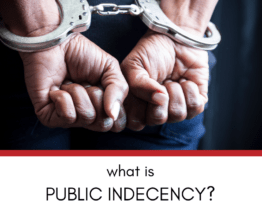
When you’re facing a run-in with the law, it’s crucial to know your rights and how best to exercise them. “You have the right to remain silent” is a phrase that’s entered the public lexicon via countless crime dramas, but do you really know when you should exercise that right? In this guide, we’re going to unpack the mystery.
When Should You Exercise Your Right to Remain Silent?
It’s essential to know when it’s time to keep quiet for your own protection. This guide will give you practical tips to help you understand when you should exercise your right to remain silent. We’ll cover:
- Understanding your right to silence
- During an arrest
- At the police station
- In court
- FAQ about your right to remain silent
Here’s a closer look at each.
Understanding Your Right to Silence
The right to remain silent is enshrined in the Fifth Amendment of the U.S. Constitution, protecting you from self-incrimination. You can choose not to answer any questions from law enforcement until you’ve spoken with your lawyer.
Related: What are the consequences of shoplifting in Illinois?
During an Arrest
The moment you’re arrested, you can exercise your right to remain silent. It’s wise to do so, as anything you say can and will be used against you in court.
At the Police Station
Even after an arrest, you should continue to remain silent until you’ve consulted with your defense lawyer. It’s crucial not to offer any information that could inadvertently incriminate you or harm your defense strategy.
Related: How a DUI conviction in Illinois can ruin your life
In Court
In the courtroom, your lawyer will guide you on when to speak and what to say. It’s critical to stick to the strategy you’ve developed with your lawyer and avoid volunteering any extra information.
FAQ About Your Right to Remain Silent
Check out these commonly asked questions about your right to remain silent. If you don’t see the answers here, please call our office, and we’ll provide the information you need.
Is it always a good idea to remain silent when arrested?
It is usually best to remain silent until you have consulted with your lawyer to avoid accidentally incriminating yourself.
Related: What happens if you’re charged with battery in Illinois?
Does my right to remain silent apply in all situations?
Yes, this right applies during any interaction with law enforcement or court proceeding.
Can my silence be used against me?
No, your silence cannot be used as evidence of guilt.
What if I’ve already started talking to the police?
You can choose to stop answering questions at any point and ask for a lawyer.
How can a lawyer help me?
A lawyer can guide you on when to speak and what to say, as well as protect your rights throughout the legal process.
Related: How to choose the right criminal defense lawyer in Chicago
It’s essential to know when to exercise your right to remain silent, from the moment of your arrest, at the police station, and in court. Remember, anything you say can be used against you, so it’s best to consult with a criminal defense lawyer in Illinois who can guide you through this process.
Do You Need to Talk to an Attorney?
If you’ve been accused of a crime, we may be able to help you – and don’t worry: It’s completely confidential. Call us at 847-920-4540 or fill out the form below to schedule your free, private consultation with an experienced and skilled Chicago criminal defense attorney now.
Contact Us
"*" indicates required fields









